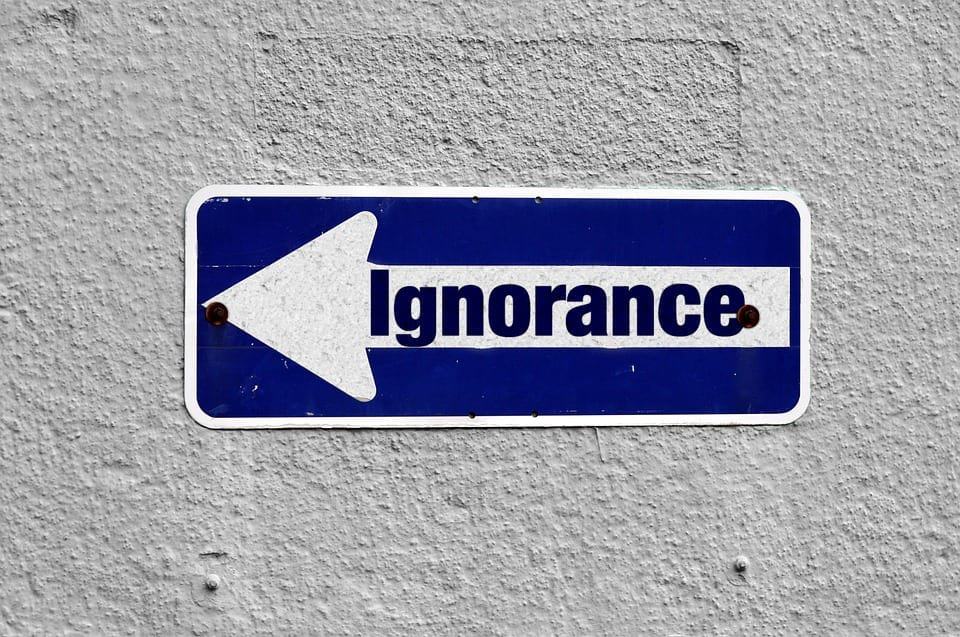Common sense is a common phrase that is in reality far from common. It seems that it should be common or we would want it to be common; after all when we apply common sense things commonly come out uncommonly good. The absence of common sense seems in large part to be related to the fact that we tack so much stuff on to it, or cut so much stuff out of it, or bend it to the point of some sort of painful contortion that we’re not certain what we’re left with other than it’s probably nothing even remotely close to common sense.
What’s problematic is that once we’ve done all of that stuff to common sense, we think that what’s left over is still common sense. Common sense is lost to the point that we don’t even recognize that whatever we’ve got left over after messing with common sense, it’s probably anything but common sense. The result is that we do incredibly stupid things while applauding ourselves for how smart we think we are.
Ralph Waldo Emerson said it well when he wrote, “Common sense is genius dressed in its working clothes.” George Bernard Shaw put it another way when he said, “Common sense is instinct. Enough of it is genius.” If that’s the case, then why is common sense so incredibly uncommon? Common sense would suggest that common sense itself is far too frequently contaminated and distorted by things that dramatically diminish or altogether destroy common sense. We bias it through a number of means that undercut it and render it largely anemic. In doing that we rob it of its simplicity and then we strip it of its effectiveness. We make decisions based on whatever we’re left with and the end product is commonly something reeking with the stench of stupidity.
Authentic Common Sense is Free of Prejudice and Bias
Common sense is a frankness that’s not convoluted by prejudice, bias, special interests, personal demands, self-centered motivations, self-seeking agendas, political correctness or any of a thousand things that twist it to something rank and spoiled, or cloud it to the point that it’s so mucked up that you can’t see in it, or through it, or even around it. Common sense is a blend of truth and fact untainted by anything that would dilute or skew it. It’s clean and transparent, entirely uncluttered to all of the muck and mire that we commonly pump into it.
Authentic Common Sense Uses Knowledge as Wisdom
Despite the fact that it’s pretty clean and simple, we somehow have the need to analyze, decipher, scrutinize, probe, inspect, dissect and then review it all in retrospect. If we don’t go through this gargantuan process, we feel that we’re not being entirely responsible and thorough. In this cumbersome process the intellectual acumen takes it all in a thousand different directions which are then further skewed by our own biases. In the end common sense is altogether killed and replaced with something that’s certainly intellectually shiny and pretty impressive, but probably entirely irrelevant and likely entirely off-base. Once we get to this place it’s all so messed up that we typically can’t even backtrack sufficiently well enough to find the place where we left common sense buried and dead.
The Value of Common Sense
Common sense is a whole lot more valuable then we might think. There is something inherently grounded in common sense, something that resonates with the facts and the realities of whatever we’re facing. It keeps things on track, focused and balanced. It directs correctly and in a manner that brings relevant solutions that are always effective. Common sense takes the confusion that we tend to create and develops a clarity that sometimes seems too simplistic to be worth anything of real value. Yet, common sense can have tremendous value. Re-evaluate your thought processes and the impact of both your own mind and those impressed upon you by the culture. Get back to the basics of common sense and you’ll find that life has a stunning clarity that has been stunningly missed.

 Craig Lounsbrough
M. Div., LPC
Craig Lounsbrough
M. Div., LPC